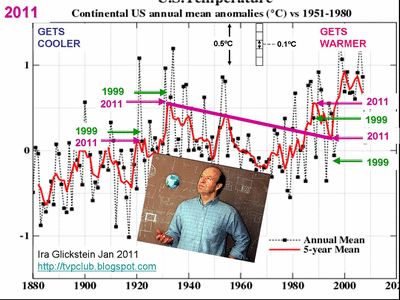The history of the twentieth century is replete with radical groups scaring children about the future they are to inherit, and encouraging them to take to the streets to shout slogans they did not understand, to denounce their parents, and to demand political changes they could not comprehend. It is not a happy company.
The reason children cannot make major life decisions for themselves, and cannot vote, is that they do not yet have the perspective or background or thinking skills to understand scientific and political issues, or the long term outcomes of environmental or economic policies. Like greenies, they have difficulty with complex ideas and situations, and are not good at weighing different theories, or the objective analysis of risk. They are impressed by scary stories and scary pictures, and suggestions they will miss out or are being hard done by through the irresponsible actions of businesses, politicians and parents.
Children need to be exposed to a wide range of views, and encouraged to think about them carefully and critically.
Advocacy is a great and necessary thing, most of the time. It can also be a very dangerous thing, when the facts are incorrect, or theories wrong. Think of children in Communist China chanting Mao’s slogans in the street during the cultural revolution. Before taking sides, we need consider the sides carefully. A good education encourages and supports children to do this.
Become emotionally engaged, certainly. But be sure you have your facts right first, or you will do more harm than good. Good intentions, divorced from reality, are a fast track to disaster.
Schools and other authorities which encourage activism in children without ensuring facts are correct, and without encouraging critical analysis of diverse scientific and political views, are using children rather than aiding them, and indoctrinating them rather than educating them.
Have children been indoctrinated rather than educated?
Have they been told that current global temperature is between eight and ten degrees below the average for the last 200 million years?
Have they been told we are still in an ice age (it is an ice age whenever there is ice at the poles), and that there has been ice at the poles for less than 20% of earth’s history?
Have they been told that warming over the last 150 years amounts to less than one degree Celsius – a difference so small you would not even notice it moving from one room to another?
Have they been told half of this minor increase occurred before any significant human output of CO2, and that over the last twenty years, as CO2 output has increased, there has been no measurable change in global temperature?
Have they been told that changes far greater, in both directions, have happened frequently in the past without any human influence?
Have they been told that since the beginning of the current inter-glacial period, it has been both warmer and colder than now, and that the general temperature trend for the last 10,000 years has been downward?
Have they been told that CO2 levels in the atmosphere have been more than ten times higher than they are now, with no ill effects?
Have they been told that CO2 is vital for all life on Earth, and that at the beginning of the twentieth century, CO2 levels were almost catastrophically low, near starvation level for many green plants?
Have they been told that if the atmosphere were a stadium of 10,000 people, only four of those people would be CO2, and only one of those possibly of human origin?
Have they told that this minimal increase in this vital, non-toxic trace gas has resulted in new forest growth, more resilient grasslands, and better crop yields?
Have they been told there is no correlation between human production of CO2 and changes in global temperature?
Have they been told that Tuvalu and Kiribati, islands which were to have sunk by 2015, and from which we were expected to take the entire populations as desperate climate refugees, have actually grown in size?
Have they been told the origin of the media claims that 97% of scientists agree with catastrophic anthropogenic climate change, and given the opportunity to consider the merits of those studies?
Have they been encouraged to consider the work of leading climate scientists, geologists and physicists like Tim Ball, Richard Lindzen, Judith Curry, Will Happer, Murray Salby, Ian Plimer, Bob Carter, John Christy, Willie Soon, Ian Clark, Ernst Beck, or the thousands of others who have raised questions about the computer modelling behind the climate scare, and suggested that the scare is not supported by the data?
No?
Then they are being used rather than aided, and indoctrinated rather than educated.



